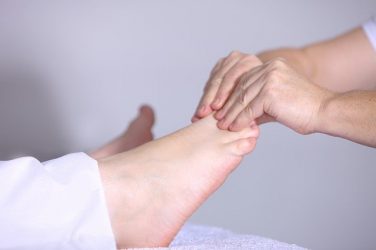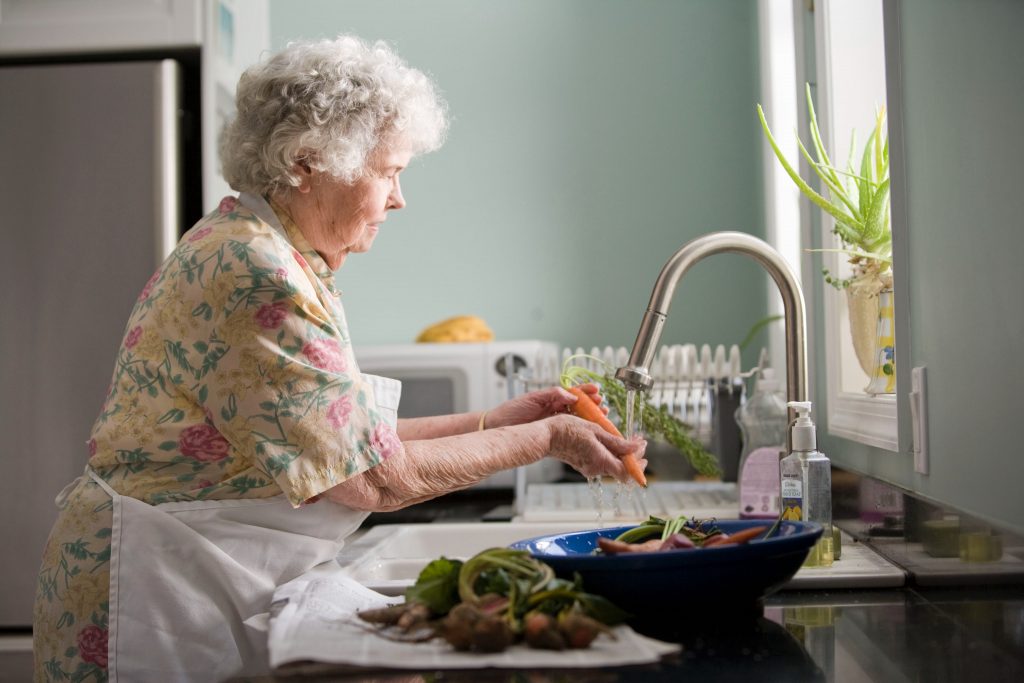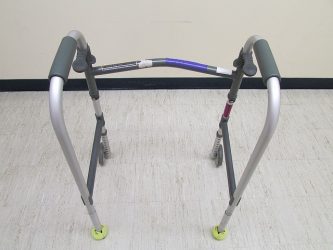Improving circulation in older adults. Circulation problems are common amongst older adults. Here's how to improve circulation.
Living with cirrhosis: risk factors, life expectancy and tips for caregivers.
Cirrhosis is a serious chronic progressive disease that affects the liver.
The on-going disease destroys the liver cells called hepatocytes.
As the disease progresses, the liver becomes scarred. And this scarring ultimately leads to liver dysfunction.
Although cirrhosis can be managed and slowed down, it is a serious illness that can lead to death.
Living with cirrhosis: what causes cirrhosis?
Most people associate cirrhosis with alcoholism.
And while this is a major risk factor for the disease, it’s not the only reason a person might have cirrhosis.
Other causes of cirrhosis include:
- As a complication of a liver infection (hepatitis)
- Exposure to hepatoxins (or chemicals that are toxic to the liver other than alcohol)
- Severe, right-sided heart failure which results in an enlarged and fluid-filled liver
Thus if you have a loved one who has heart disease or has had hepatitis in the past, these could serve as risk factors for cirrhosis too.
How long can you live with cirrhosis of the liver?
Surviving cirrhosis depends on multiple factors including age, the overall health of the person and the cause of cirrhosis.
Thus how long a person can live with cirrhosis will differ from one person to the next.
There are four stages of cirrhosis.
The four stages of cirrhosis
- During stage 1, patients lack energy and constantly feel tired. The liver is inflamed at this point and the individual may have a swollen abdomen. Cirrhosis can be reversed at this stage if a doctor detects it early and the patient makes the right lifestyle changes.
- During stage 2 of cirrhosis, the pressure in the veins surrounding the liver begin to rise. This happens because of an obstruction in blood flow to the liver. This is called portal hypertension. With reduced blood flow and increasing scar tissue, cirrhosis could be slowed at this stage but it may not work.
- Ascites – or fluid accumulation in the belly area – develops during stage 3 of cirrhosis. At this point, the veins are congested and so a lot of fluid gets trapped in the abdomen. More scar tissue develops in the liver. Other symptoms like itchiness, lack of sleep and weight loss happen at this stage. Jaundice also happens at this stage. Jaundice is a yellowing of the skin and tissues that happens because the liver can no longer break down a substance called bilirubin. At stage 3, cirrhosis is irreversible. And at this point, the individual becomes a candidate for a liver transplant.
- The symptoms associated with stage 3 cirrhosis are similar to stage 4. During the final stages of cirrhosis of the liver, confusion, personality changes and hand/muscle tremors become common.
What can you do as a caregiver?
At stages 1 and 2 of cirrhosis, we can still do a lot to slow down the disease.
You can help your loved one make lifestyle changes like:
- Quitting alcohol
- Exercising regularly
- Eating a balanced diet of meals
- Restricting sodium and fluid intake (especially when ascites starts)
- Following medication regimen that is prescribed by a qualified medical provider
- Quitting opioid and narcotic intake
- And even in following medication regimen, make sure you are reading labels to ensure medication will not harm your loved one’s liver.
During stages 3 and 4, cirrhosis is not reversible.
At this point, you can mainly provide supportive care to your loved one as they wait to get a liver transplant.
- For a loved one who is confused, provide a safe environment so they don’t hurt themselves.
- Elevate the head of the bed while they sleep. This reduces shortness of breath.
- Monitoring your loved one’s level of consciousness.
During these stages, it might be time to consider working with professional caregivers so that your loved living with cirrhosis can get the proper care they need.
What is a durable power of attorney and why do you need one?
We’re living through a pandemic.
It is more important than ever for seniors to think about what kinds of medical decisions you want to be made for you in case you cannot make them yourself.
A medical durable power of attorney is document that gives someone else the power to make decisions on your behalf. Of course, this would be in a scenario where you cannot make those decisions yourself.
Although COVID-19 can affect people of all ages and different demographics have recovered from the illness, it is important for older adults to clearly state in writing, who can make decisions for them in case they’re unable to do so.
Even in the absence of COVID-19, accidents, illness and age-related dementia call for older adults to prepare a durable power of attorney.
Selecting a durable power of attorney for healthcare
Nobody can dictate who you choose as your durable power of attorney.
However, we recommend that you choose someone you trust and who is reliable.
It is best if you can work with a lawyer to draft the legal document when you’re appointing the power of attorney.
Can I name more than one person as a power of attorney?
If you live in the United States, you can name more than one person as your durable power of attorney.
However, it is important to specify exactly what each of their roles in decision-making will be.
And whether or not one decision supersedes another should they have conflicting ideas on a medical decision.
We highly recommend that you have a conversation with your lawyer so you can understand the pros and cons of choosing one or multiple powers of attorney.
What happens after I name my medical power of attorney (POA)?
You will work with your lawyer to draft the legal document.
Once it is finished and all the needed signatures are on your document, you can save the document in different places.
- Your lawyers will have a copy.
- You can save a copy in your home in a place where your spouse or named power of attorney knows.
- If you have a personal doctor, you could also ask them to keep one with your medical records.
Having a durable power of attorney long before you need it, can prevent family misunderstandings.
And it will prevent a court of law (instead of your loved ones) from making crucial medical decisions for you.
Also note that, a POA may be called a “healthcare proxy”, “agent” or “healthcare surrogate” depending on where you live.
Read this post where we talk more extensively about estate planning for older adults.
Your elderly loved one is bleeding from the nose and you are worried.
What could be the issue? Why are they experiencing nosebleeds so much?
Nosebleeds in the elderly can happen for the following reasons.
- Dry weather that dries up the nostrils
- Sinus infection
- Aspirin use (if your loved one takes aspirin as part of their medication regimen)
- Blood thinners
- A foreign body in the nose
- Allergies
- Even nasal sprays that treat allergies can also cause nosebleeds
Most of these are not a cause for alarm. And usually, you can resolve a nosebleed by getting rid of the precipitating event.
For most older adults, an occasional nosebleed may be nothing to worry about.
But regular nosebleeds for an older loved one could point to more serious issues like a severely injured nose (due to a fall or another type of accident), coagulation disorders, heart problems, arterial hypertension and some types of cancers.
To stop a nosebleed:
- Get your loved one to sit down and lean forward.
- Pinch the soft part of their nose (or direct them) just above the nostrils and hold it for 10 to 15 minutes.
- You can also place an ice pack wrapped in a towel (or frozen vegetables) over the bridge of their nose.
If a nosebleed lasts for longer than 20 minutes, you should seek immediate medical attention.
Nosebleeds in the elderly – what you can do as a caregiver
Like I mentioned before, you can treat occasional nosebleeds by treating what caused it. Here are steps caregivers can take to treat nosebleeds.
- Make sure your loved one is well-hydrated especially during colder and dryer months. Around winter time, the weather is colder and the air is dry. People tend to have more nosebleeds at this time. Making sure your loved one is hydrated will keep their lips and nose hydrated and prevent bleeding.
- A sinus infection should be treated with the right medications to make sure it does not cause other problems. See a doctor about proper treatment.
- If your loved one is on aspirin or blood thinners, find out from your loved ones’ doctor what they would recommend to prevent and stop the bleeding.
- Minimize the probability of falls around the home to prevent injuries.
Beyond these, it is always to watch out for other changes that have accompanied the nosebleeds.
This will give you clues as to the actions you should take and when it is time to see a medical professional.
What does a second wave of COVID-19 restrictions mean for you as a caregiver?
News reports over the last week have focused on a second wave of COVID-19 cases.
States like Florida, Texas and Arizona have stopped reopening their states so that they can slow the virus spread.
Los Angeles county which had opened up beaches announced a few days ago, that they would close down the beaches to keep more people from getting infected.
At this point, if you’re exhausted at the thought of this second wave, you’re not the only one.
So what can you do as a caregiver during this time?
In today’s post, I will provide some pointers on how to cope as a caregiver during this second wave of COVID-19 restrictions.
Surviving a second wave of COVID-19 restrictions
Continue to stay safe
A second wave means it is important for us to continue to shelter in place and practice safety measures.
This means that if you care for an elderly loved one who has underlying health risks, it is important to be diligent about:
- Wearing a mask (both you and your loved one) when you go into public spaces where there will be a lot of people
- Avoiding those places where large groups of people gather
- Washing hands for at least 20 seconds with soap and under running water. Do this every time you come into your house from outside.
- Using hand sanitizer especially when you are out in public
Other actions include making sure you and your loved one are consuming enough vitamins and minerals.
Vitamin C for instance is well-known to boost our immune systems.
So while we do our best to stay at home and practice safety measures, make sure you and your loved ones’ immune systems are supported by healthy foods.
Take care of your emotional health
For many caregivers – especially those who are taking care of children as well as elderly loved ones – this has been a challenging time.
Children are home from school and as a caregiver, you have to attend to them.
And with this second wave, it is likely schools will not reopen until 2021.
For a lot of caregivers, this means triple the amount of work as they juggle caring for children, caring for their elderly loved one and staying on top of their work-life.
If this is you, remember to:
- Take care of you as well. As cliche as it sounds, if you’re not taking care of yourself, you won’t be fit to take care of your loved ones. Check out this post to learn self-care tips for caregivers.
- Speak with a mental health professional. These are unprecedented times. Nobody was prepared for this. So it’s okay to talk to someone about how you’re feeling. The great thing here is you get a listening ear and tools to help you cope.
- Hire help if you need it. Green Tree Home Care is available all through this season to support you with our trained staff who abide by COVID-19-related public health rules. Call us today at 800-518-9277.
Bust through the boredom with fun at-home activities
Summer vacation travel plans cancelled? No worries.
There is still a lot you can do to bust through boredom from home. Here are some ideas for you and your household.
- Learn a new skill for work – with so many online learning platforms out there, this is a perfect time to polish up or learn a new skill.
- Practice a new hobby. Remember when you said you wanted to learn how to play the violin? Here’s your chance.
- Discover new books.
- Have virtual parties with distant family.
While these second wave of COVID-19-related restrictions due to rising cases, is NOT fun, we can beat it together.
Lymphedema in older people.
What is lymphedema?
And why should you care about it as a caregiver?
In today’s post, we will talk about what lyphedema is, how to identify it and how you can care for your loved one who has it.
Lymphedema in older people – what is it?
Lyphedema refers to swelling that occurs in the arms or feet due to a blockage in the lymphatic system.
The lymphatic system is part of your immune system. It is a network of tissues and organs that drain your system of toxins, dead bacterial cells, and other unwanted materials from infectious agents.
Your tonsils and spleen are part of your lymphatic system.
Since your lymphatic system is involved in drainage, you can think of them as pipes taking the waste away.
If for any reason they become blocked, the affected person will retain fluid in their body which then causes the swelling you see in the legs and arms.
In lymphedema, usually only one arm or leg will become swollen. In some instances, both could be swollen as well.
Symptoms of lymphedema
The symptoms of lymphedema include:
- Swollen legs and arms including the fingers and toes. Usually, this happens on one side of the person.
- The affected individual might complain of heaviness in the affected limbs
- Pain or discomfort.
- Restricted range or motion and movement.
- Recurring infections. Your lymphatic system is crucial to your immune system and a blockage here also means your immune system is not clearing infections effectively.
- Thickening and hardening of the skin.
What causes lymphedema?
Lymphedema can happen on its’ own (also called primary lymphedema) or it can happen because of another disease (called secondary lymphedema).
People who are older, overweight or who have undergone treatment for cancer are all at high risk for developing lymphedema.
If it is not properly cared for, lymphedema can lead to life-threatening infections. Another complication of lymphedema is lymphangiosarcoma – a type of cancer that affects soft tissues.
What can you do as a caregiver to support a loved one with lymphedema?
- Encourage them to see their doctor for a treatment plan.
- Encourage your loved one to adhere to the treatment plan so the edema can be resolved or the effects reduced.
- Help your loved one elevate their limbs above the level of their heart when they are sitting down or resting.
- Help your loved one avoid wearing tight-fitting clothing.
- Continue to help your loved one protect themselves from cuts and bruises that could introduce infections.
- Protect their limbs from extreme temperatures (very cold or very hot).
- Assist your loved one with moving around if their movement has been impaired.
- Adhere to safety rules around the house to prevent falls and further injury.
- Continue to provide supportive care. This includes making sure they are comfortable in bed and are eating are balanced nutritious diet.
10 activity ideas for your loved one who is bedridden.
Here’s a reality – nobody likes to be in bed for a prolonged amount of time with nothing to do.
Thus, your loved one who is bedridden is itching for activities to keep their mind off the fact that they’re bedridden.
But one common challenge caregivers face is finding activities for loved ones to engage in while they are bedridden.
Whether your loved one is bedridden at home or is in the hospital, you’ll learn engaging activity ideas for them from the list below.
Let’s delve right into it.
10 activity ideas for your loved one who is bedridden
Reading books
Reading books has long been the way to while away time. If you know what types of books your loved one enjoys, either buy or borrow them from the library for your loved one.
Listening to audio books
Audio books are an excellent way to consume books especially if you’re not up for looking at pages of texts for long periods of time. It is common for elders to struggle with their eyesight. Audio books can therefore be a great alternative for them.
Services like Audible, Scribd and Audiobooks.com are excellent sources for audio books.
Watching TV shows
An oldie, but a goodie! And you don’t have to limit your loved one’s watching preferences to network television.
There are even YouTube channels that have a lot of great content that could appeal to your loved one.
Board games
If they are up to it, a good board game is another great way to engage your bedridden loved one.
Crafts
Crafts are great for any age and they are great at eliminating boredom. So try some crafts with your loved one. You never know what they will fall in love with.
Podcasts
Podcasts cover a wide variety of topics these days – from entertainment to business to commentary on popular TV shows. One can stay engaged for hours listening to podcasts.
Musical instruments
If your loved one can still use their upper body strength, playing musical instruments with them or even learning to play a new one can keep them engaged and entertained.
This is also an activity the whole family can participate in.
Conversations with loved ones on Skype or Zoom
Are loved ones scattered all over the country or globe? Show your loved one how to use communication tools like Skype or Zoom so they can talk with family that live elsewhere.
Check this post out for 4 user-friendly video calling apps for the elderly.
Puzzles
Everyone loves a good puzzle! And for your loved one who is bedridden, this is an excellent way to help them engage.
Ipads/Tablets
Several of the activities listed here could be done with an electronic tablet and then there is so much more that is not mentioned here.
Either way, an electronic tablet presents a great opportunity to your loved one engaged while bedridden.
Is your home walker-ready?
Mom or Dad is moving in with you shortly and they have a walker.
Or perhaps, they are aging in place and you want to help them make their home walker-ready.
In today’s post, we’ll cover the steps you can take to prepare your home or your loved one’s home to make it walker-ready.
5 home walker safety tips
But first, home walker safety tip number one!
The number one safety tip to consider when you’re getting your home ready for a walker is to ensure that you or your loved one is properly fitted for the walker.
While it may seem you can just grab any “ole” walker and make it work for you or your loved one, this is not advisable.
For a walker to be safe and supportive, it has to fit your height, weight and specific situation.
The wrong walker can lead to injuries that are caused by the walker not being rightly fitted for you.
The wrong walker can also lead to falls, which can in turn be fatal.
Consider a wider door
If your door is narrow, you might want to consider a renovation that includes widening your doorway to the allow the walker in. Of course, you will have to consider if this is absolutely necessary.
We do realize that this could mean a significant financial investment but ultimately, it will help you or your loved one come in and out of the house much easier.
Ramp for easier movement
Stairs can prove challenging for people with mobility issues.
Where possible, build a ramp that allows easier movement in and out of your home.
Bedroom downstairs or which does not involve too many stairs
This ties into the point above.
A bedroom downstairs reduces the need for you or your loved one to use the stairs – a common cause of falls.
Get rid of obstructions
Loose rugs, wires that cross the floor and any other object that is in the way can become fall hazards.
If you have a loved one in your home who uses a walker, get rid of obstructions in those spaces where they travel frequently.
Keep pathways lighted up
You or your loved one may need to go to the bathroom in the middle of the night.
In addition to keeping pathways clear of obstructions, it is helpful to have night lights.
At the very least, you or your loved on should have the ability to control lights so that pathways are lighted when there’s no daylight outside.
Need reliable home care services for you or your loved one?
Call Green Tree Home Care at 800-518-9277 to talk to a representative and find out how we can help you.
The caregiver and the pandemic
We couldn’t have made up what is going on in the world right now – even in our best movies.
And we know you are feeling the pinch as a caregiver.
Perhaps, the COVID-19 pandemic has meant you have to cut your hours at work.
Maybe, the people who were helping you taking care of your loved one are now having to keep their distance.
And it certainly doesn’t help that the number of COVID-19 cases around the world keeps going up.
So how do you take care of yourself as a caregiver during this time?
In today’s post, I will offer some suggestions on what you can do to cope with the current crisis.
The caregiver and the pandemic – Taking care of yourself during this time
Dealing with unemployment
If the current crisis has led to losing your job, here are a few paths you can take.
- File for unemployment quickly in case your period of unemployment extends beyond what you expect.
- Even though there have been mass lay-offs in certain industries like travel and tourism, some industries are looking to bring on thousands of workers during this season. Grocery outlets, pharmacy chains and hospitals are hiring staff to keep up with the current demand on these sectors. Start applying now.
- Talk to your utility companies and credit card companies. Several companies are now issuing leniency clauses that state that you will not be penalized for late payments or nonpayment for your utilities or credit cards. I imagine calling these companies right now will be a long phone wait. So, if you have access to the internet, I recommend you try to get in touch with the company that way to discuss your situation. There is also now relief for you if you’re paying off student loans. Call your student loan servicers and talk to them.
- To protect older adults, Medicare recently approved telehealth benefits for older adults. This way, older adults can get the care they need from home. If you care for an older adult, call your loved one’s doctor to make sure they offer it and then take full advantage.
- Don’t give up.
Handling the emotions that come with uncertain times
These are unprecedented times.
It is alright to voice your feelings or even to cry. Care-giving is hard. Having to do it in the current environment is even harder.
Because of physical distancing, mental health professionals have had to move their services online.
This is a great opportunity to chat with one so they help you discover coping tools you can use.
These guidelines by the National Alliance on Mental Illness (NAMI) is helpful for finding the right mental health professional.
If you do indeed have one or two people helping with your loved one, make sure they are observing increased hygiene practices.
Any caregivers who come from an agency, need to be washing their hand before and after they touch your loved one.
If they are sick, they should be staying at home and a replacement should be provided.
If someone gets sick
If someone in your household gets sick during this time, call the hospital first.
There are triage nurses who will speak with you to determine if you (or your loved one) should come in to the hospital.
Let’s continue to stay safe.
Tips to protect your mental health during the current global pandemic.
To say the current news is stress-inducing is an understatement.
The numbers of people infected with the novel Coronavirus keeps going up.
The death toll – although it is at 4% of all cases – is still very disturbing.
It certainly doesn’t help that everyone is now encouraged to stay indoors.
For some people who have been through traumatic war-time experiences, perhaps this dredges up bad memories.
This is a difficult time for everyone around the world.
How do you protect your mental health during such a stressful time?
In today’s post, I am going to share four tips to protect your mental health in the midst of the stress.
4 tips to protect your mental health during the current pandemic
Be truthful with yourself
The first step to protecting your mental health is to be truthful with yourself.
It is okay to admit that you are feeling overwhelmed. It is okay to voice out your frustrations and let those around you know how you’re feeling.
The truth? You’re not alone in those feelings.
Shut off the stress-inducers
The news is stressful right now. There is no doubt about that.
News networks want to be the first ones reporting the latest news and numbers.
While it’s important for us to be abreast with it all – it is alright to give yourself a break.
Don’t feel you need to sit down and soak it all up.
Take a walk around your house.
Read a new book.
Set up a video conference call with your family.
Do what you can to stay away from anything that increases your anxiety.
Talk to a mental health professional
With expanded telehealth benefits for Medicare beneficiaries, you might be able to chat with a mental health provider over the phone or other virtual service.
Mental health providers can give you the tools you need to cope during this time.
Find out from your mental health provider if this is possible.
Start a new hobby
Now is a great time to start a brand new hobby!
This can help you keep your hands and mind busy so you’re not worrying so much about the news.
These tips to protect your mental health during the current pandemic can help you cope until we all finally come out of this.
We cannot always change the course of the storm; but we can choose to thrive in the midst of it.










